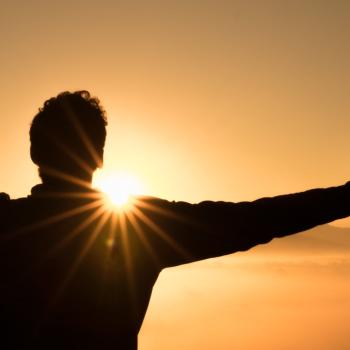Among the possibilities, to me one stands out. I can think of nothing that I have done personally to contribute to the abysmal incarceration rate in the United States. Probably very few, if any, can say that they have personal responsibility for it. It is a product of a system that acts as if it were independent of any agent. Nevertheless, we have done it, imprisoned a higher percentage of our population than any other nation, nearly half for non-violent crimes, many for sentences much longer than can be justified, and a disproportionate number of them black or from other minorities.
We use prison to destroy lives and families and communities, but we do it communally rather than individually, so no one seems responsible for the sin or even intends it. Though we commit this sin collectively, we individually wish things were otherwise. We are double-minded and, so, unstable in everything (Jam. 1:8). But Christ died for that sin, as well as for my personal sins. We must accept this destruction as our sin, as an injustice toward our brothers and sisters. We must find a way to repent.
Holy Saturday is a day of waiting and meditation. Waiting to commemorate his First Return, we anticipate as well his Second. For a Christian, the Second Coming makes time kairotic. If we live in hope of that Coming, every moment of waiting is also a moment of decision in response to God's actions in the world. Christian waiting is not quietist. It is active. Christians work to bring about the divine reign that they wait on.
On Holy Saturday we also remember that during the time between Jesus' death and resurrection he "preached to the spirits in prison" (1 Pet. 3:19; cf. D&C 138). According to Mormon belief, that made it possible that "the dead who repent will be redeemed, through obedience to the ordinances of the house of God" (D&C 138:58). Salvation, temporal as well as spiritual, is for all who will have it. It does not matter when or where they have lived, and that message applies not only to the dead but to the living. It is the good news to all.
Finally, Easter, the day toward which Holy Week points. Thomas S. Monson, the current president of The Church of Jesus Christ of Latter-day Saints, recognized as a prophet by members of the Church, testifies of the reality of the resurrection. Mormons as a whole join him in that hope and testimony, and the resurrection of Christ testifies of our own resurrection.
Jesus' resurrection offers us not only hope for eternal life hereafter. It calls us to a life redeemed from sin, personal and communal, through the atonement wrought by Jesus the Messiah. It calls us to a life resurrected in mortality, snatched from the death of sin to life in Christ. His death on the cross and his resurrection are the ultimate symbolic enactment of the Christian life: death to sin in the service of others; newness of life in kairotic time.





